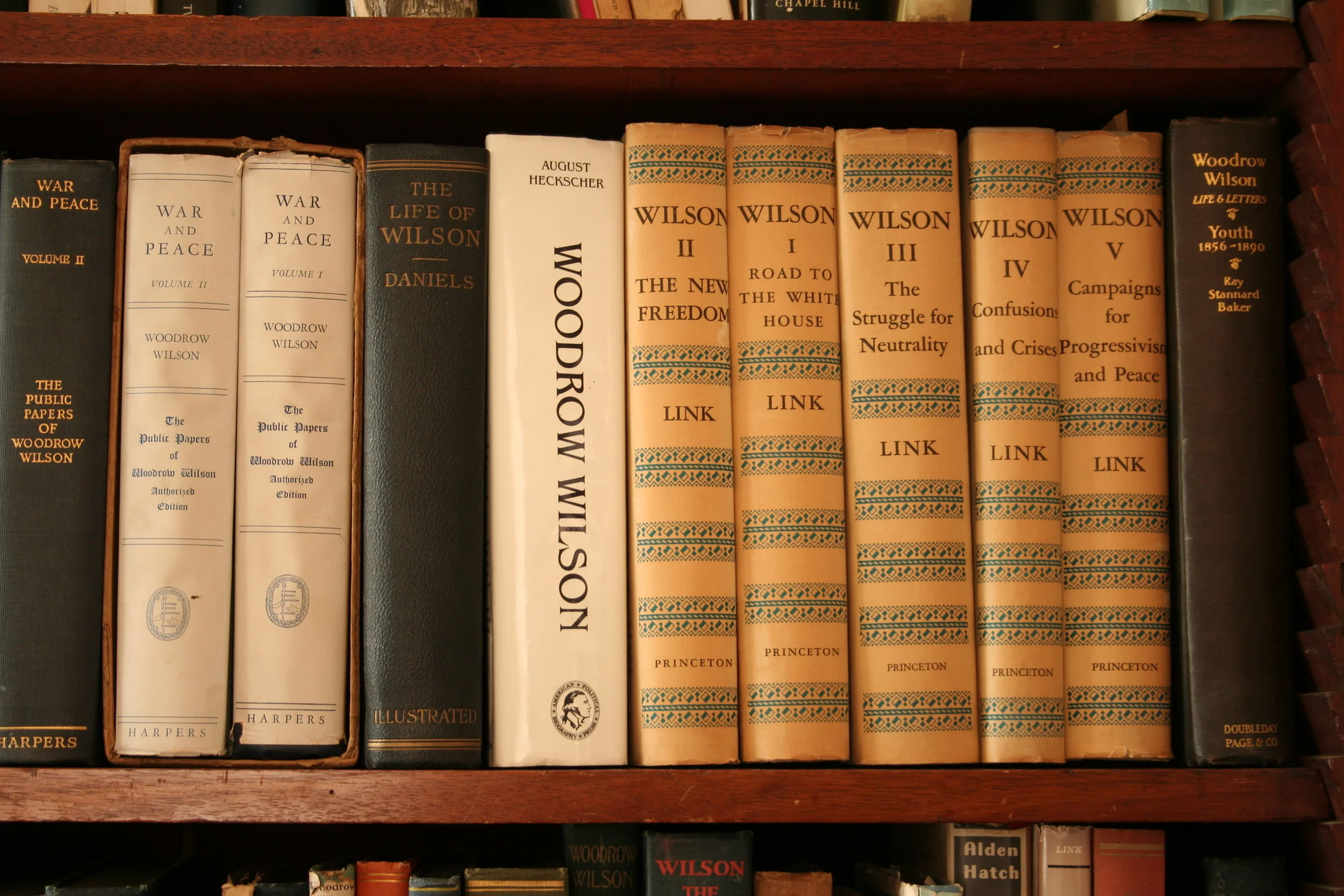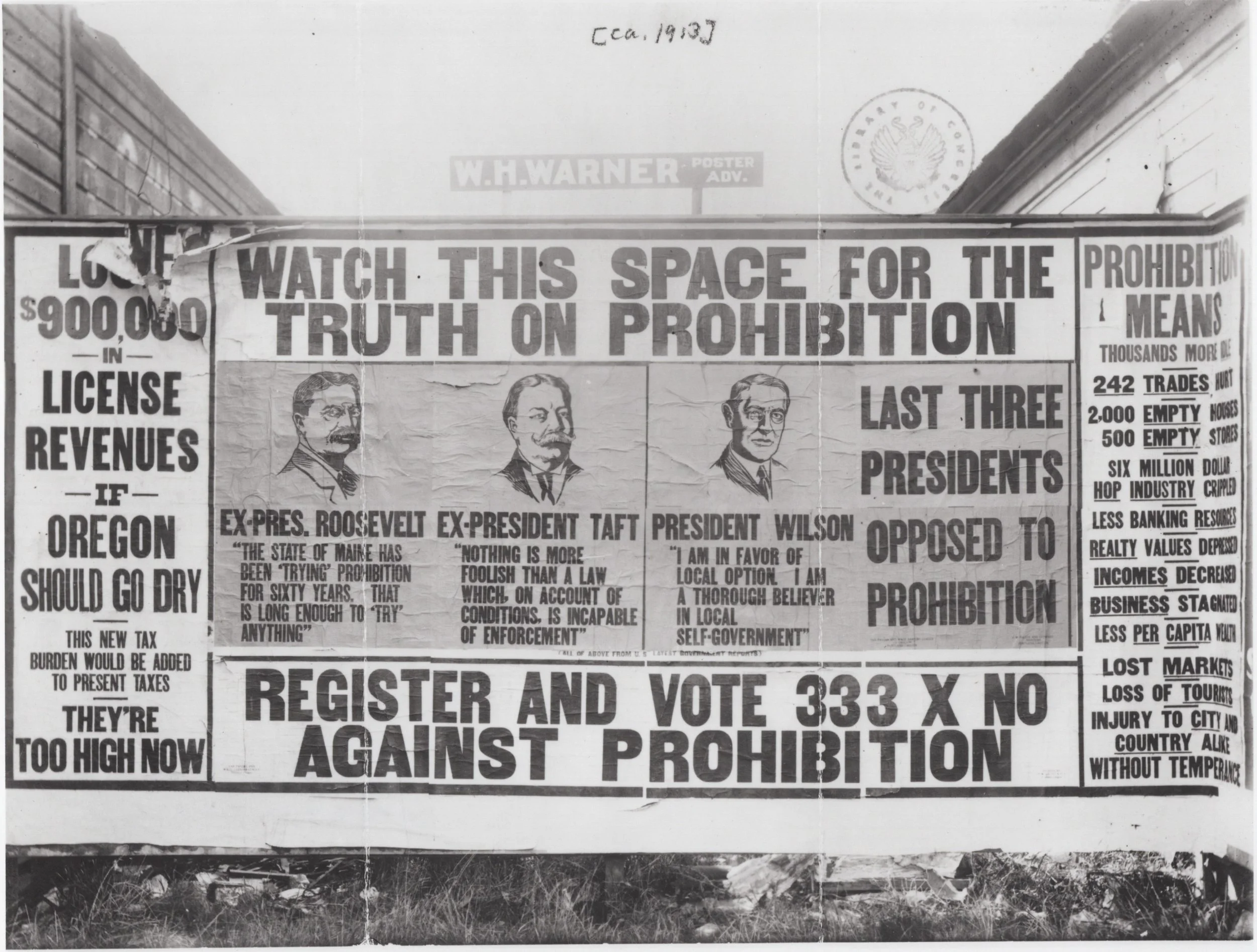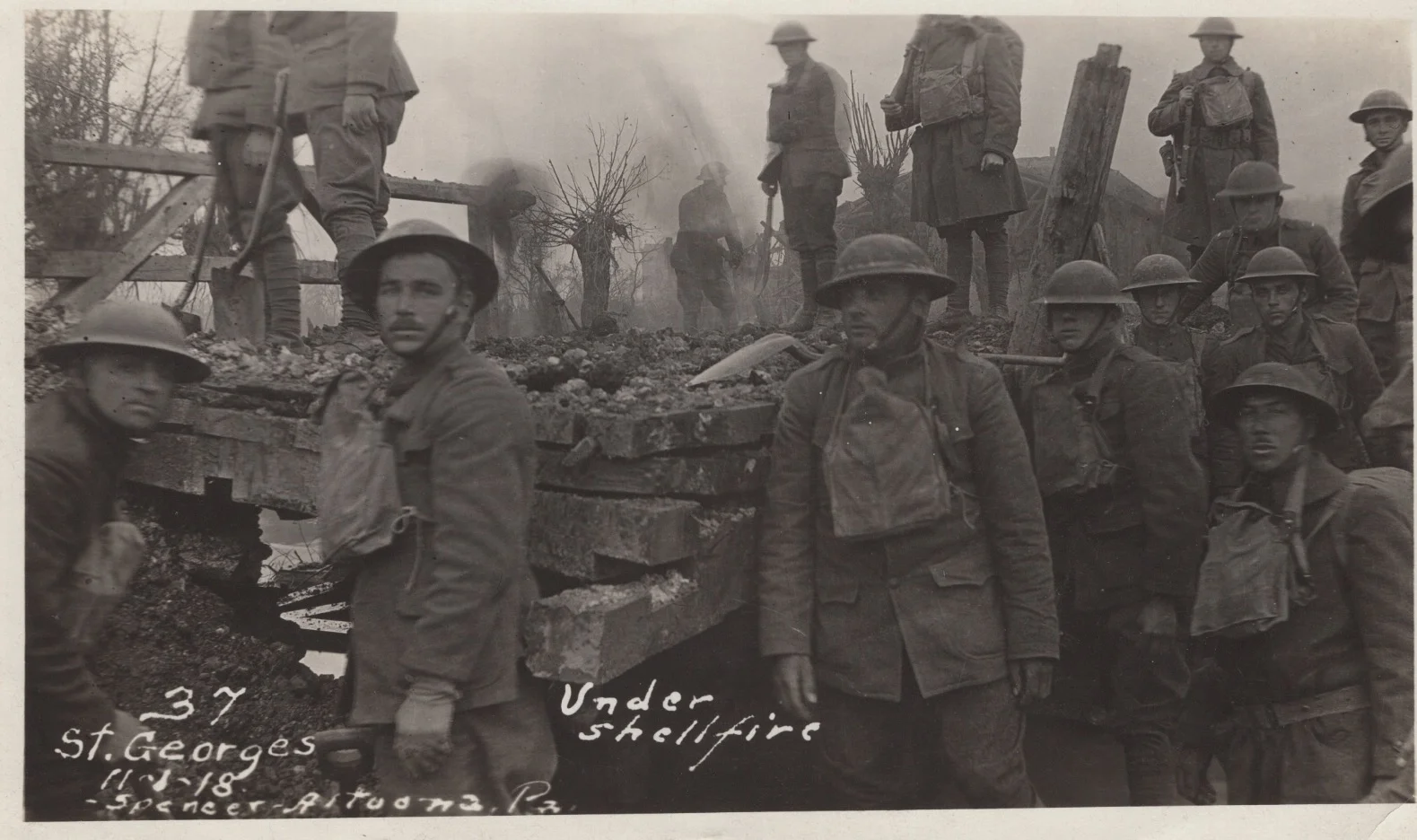The Oldest Book at the Woodrow Wilson Archives & Research Center
/Here in the Library and Research Center, we have quite a few books that are older than you might expect. Not only have there been efforts to acquire volumes that represent what President Wilson’s father, Joseph R. Wilson, would have had in the Manse when working as a Presbyterian minister in Staunton in the 1850s, but donations have come in to us from the wider Wilson family and from collectors of anything ever owned by Woodrow Wilson.
Read More









